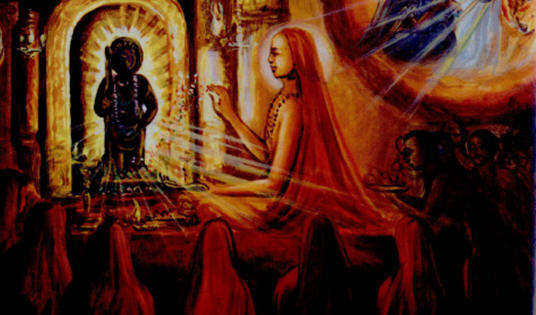
Udupi emerged as a great centre of vedantic philosophy after the advent of Shri Madhvacharya. He was the exponent of ‘Dwaita Vedanta’
Shri Madhvacharya was born in a place called Pajaka at the foot of-a hill called Kunjarugiri or Durga betta, with a Durga temple on its top. The Acharya was born in fulfillment of the prayers offered at Ananteshwara temple by his parents who were Shivalli Brahmins. He was initiated into ascetic renounced order in his sixteenth year. He traversed the length and breadth of the country many times with his trusted disciples. Badrinath in the Himalayas was his favourite spot, where he is reported to have visited the hermitage of his Guru, the divine sage Shri Vedavyasa and received directions for writing his commentaries on ‘Brahmasutras’ and the Mahabharatha epic composed by the divine sage. In all he has written 37 works, 4 on Brahmasutras, 10 on Upanishads, 2 on Shri Bhagavadgita and the rest on various topics of philosophy.
The ‘Dwaita’ philosophy highlights that the Lord and the living entity are always different. Salvation (Moksha) is possible through pure devotion (Bhakti), which is eternal bliss. In several of his works the great Acharya has disclosed his identity as the third incarnation of Lord Vayu, the earlier incarnations being Hanuman and Bhima. He disappeared from human sight in 1317 .A.D. while delivering a discourse on Aitareya Upanishad at a particular spot in Ananteshwara temple.